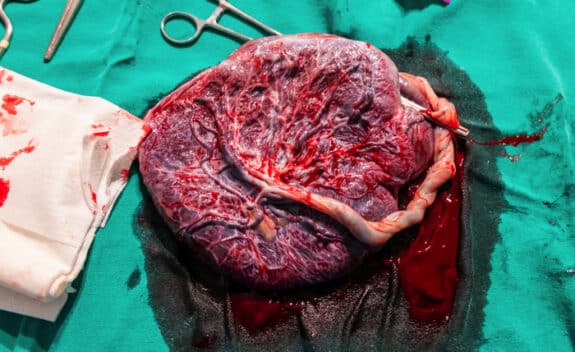The placenta, a temporary organ that forms during pregnancy, serves as a vital link between mother and baby. Not only does it enable the transfer of essential nutrients, antibodies, and oxygen from the mother’s bloodstream to her developing baby, but it also offers a surprising line of defense against viral infections.
In a new study published in Cell Host & Microbe, researchers shed light on the intricate mechanisms that provide this anti-viral protection. Led by Dr. Hana Totary-Jain, an associate professor at the USF Health Morsani College of Medicine, the team delved into the intriguing world of viruses that can potentially harm both a pregnant mother and her fetus.
The vulnerability of a developing fetus to infections stems from its immature immune system. Viruses like Zika and rubella pose a severe threat, as they can be transmitted from mother to fetus in utero, leading to devastating consequences.
Nevertheless, the exact biological processes that safeguard the fetus against most viral infections have remained elusive. Dr. Totary-Jain and her team’s research focuses on a specific gene within the placenta that plays a crucial role in this defense mechanism.
According to Dr. Totary-Jain, “The placenta, in humans and mice, is constantly exposed to maternal blood, increasing the likelihood of viral transmission from mother to fetus. Therefore, the placenta has evolved robust defense mechanisms to prevent this transmission. We discovered a gene expressed exclusively from the paternal allele, which triggers a response mimicking viral infection. This constant state of antiviral defense is essential for the baby’s well-being.”
Excitingly, the researchers found that activating this gene in other cells also protected them from various viruses. This evolutionary adaptation ensures the baby’s survival, as without it, childbirth would be a much riskier endeavor.
The research conducted by Dr. Totary-Jain’s team fills a significant knowledge gap concerning the limited impact that many viruses have on a fetus, including SARS-CoV-2. Furthermore, the implications of understanding how the placenta shields the developing fetus extend far beyond childbirth.
Dr. Charles Lockwood, Dean of the Morsani College of Medicine and executive vice president of USF Health, explains, “This novel placental mechanism offers crucial protection against the transplacental transmission of most viruses. Armed with this knowledge, we may be able to develop new antiviral medications that can combat viruses that pose a deadly threat to fetuses and newborns.”
In essence, the placenta’s role in protecting the developing fetus from viral infections is a testament to the awe-inspiring complexities of pregnancy. By deepening our understanding of these processes, we pave the way for innovative strategies in fighting viruses that threaten the health of both mothers and babies.
More Pregnancy News:







